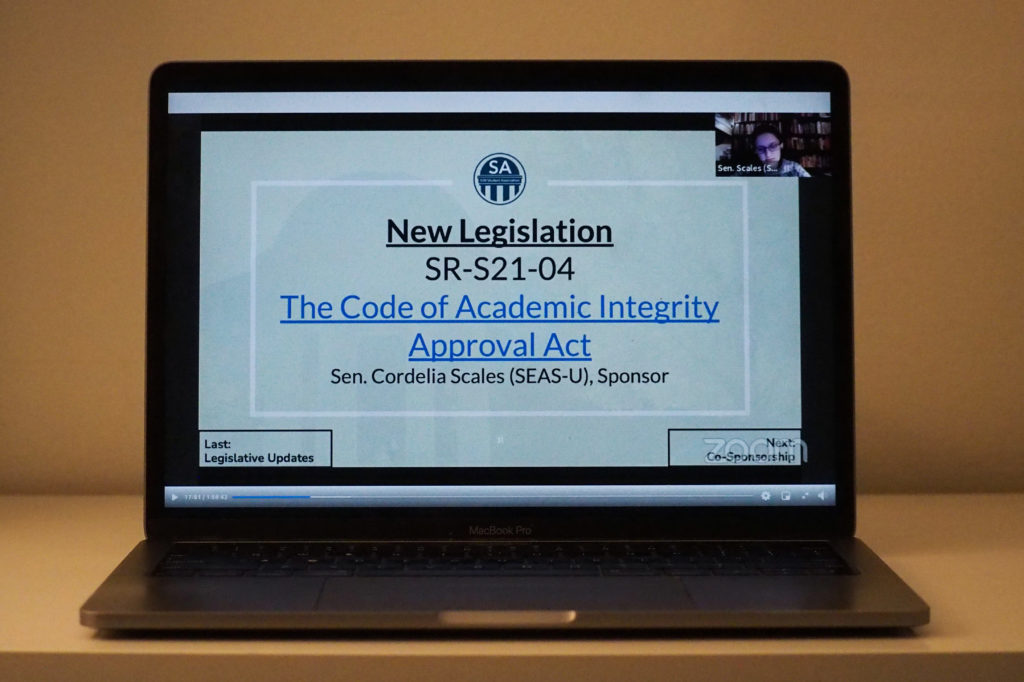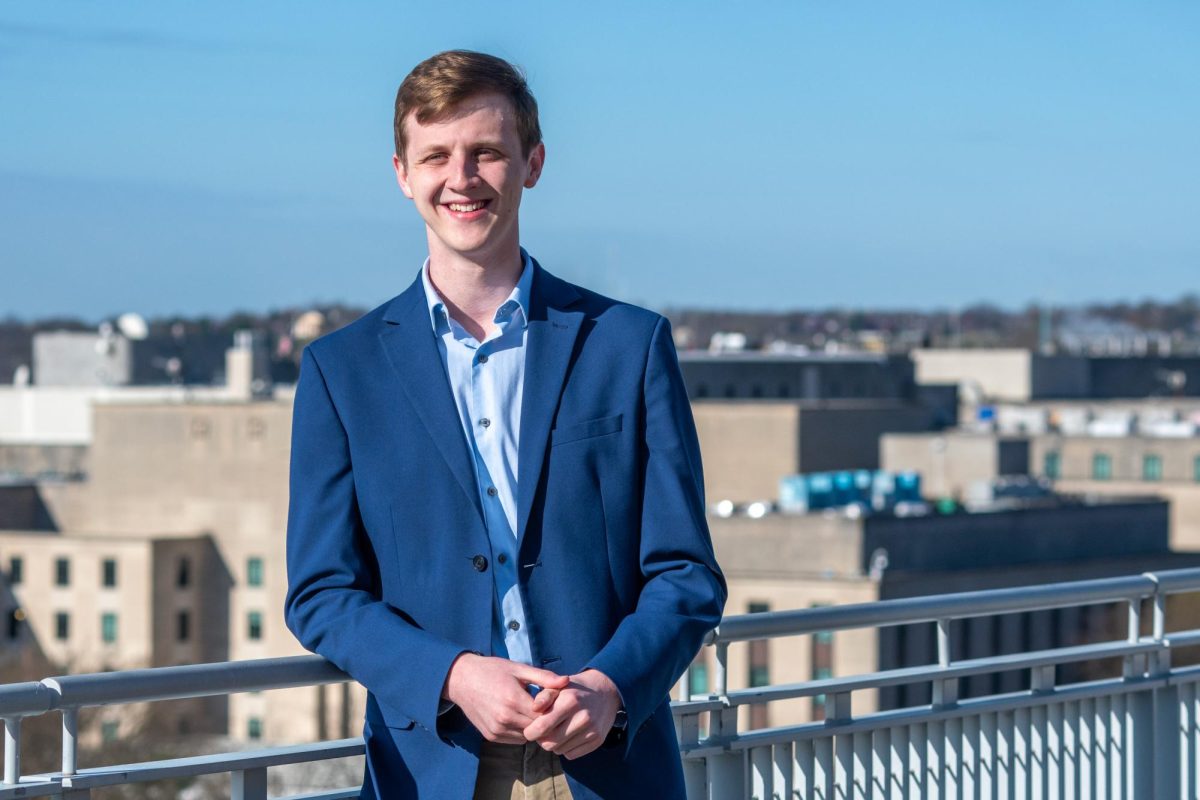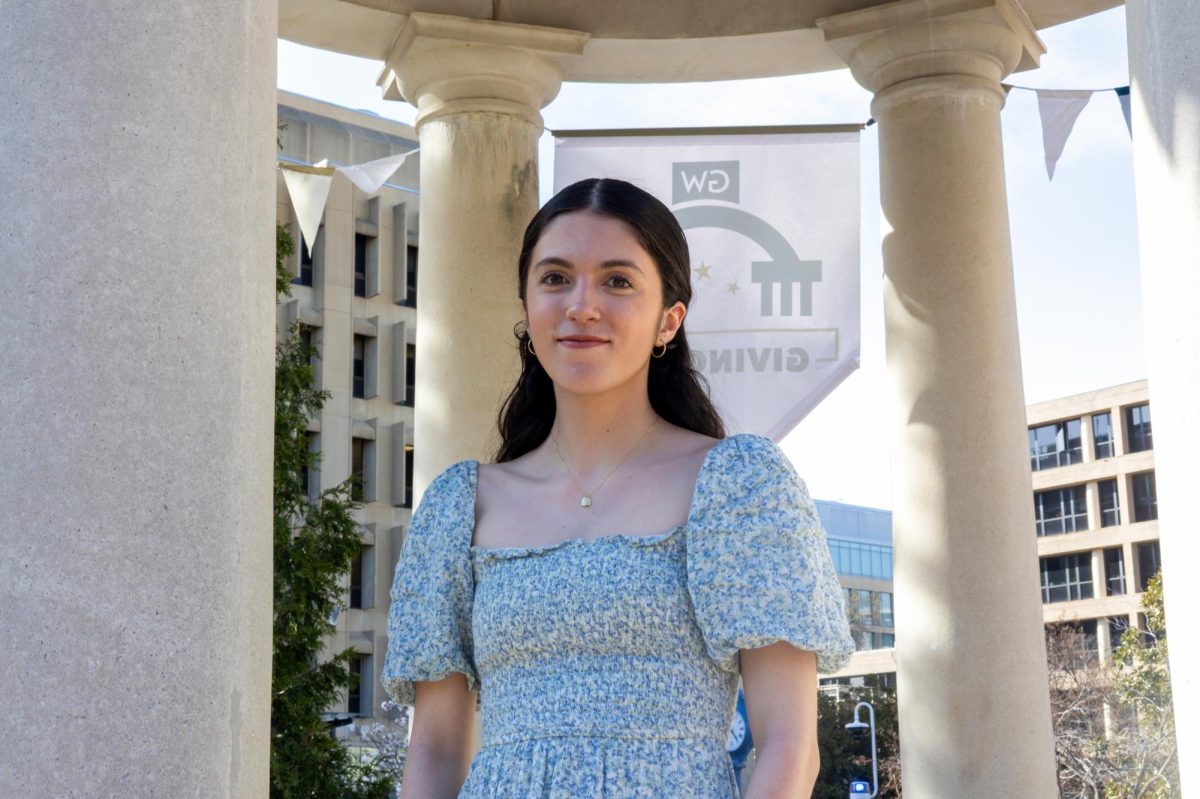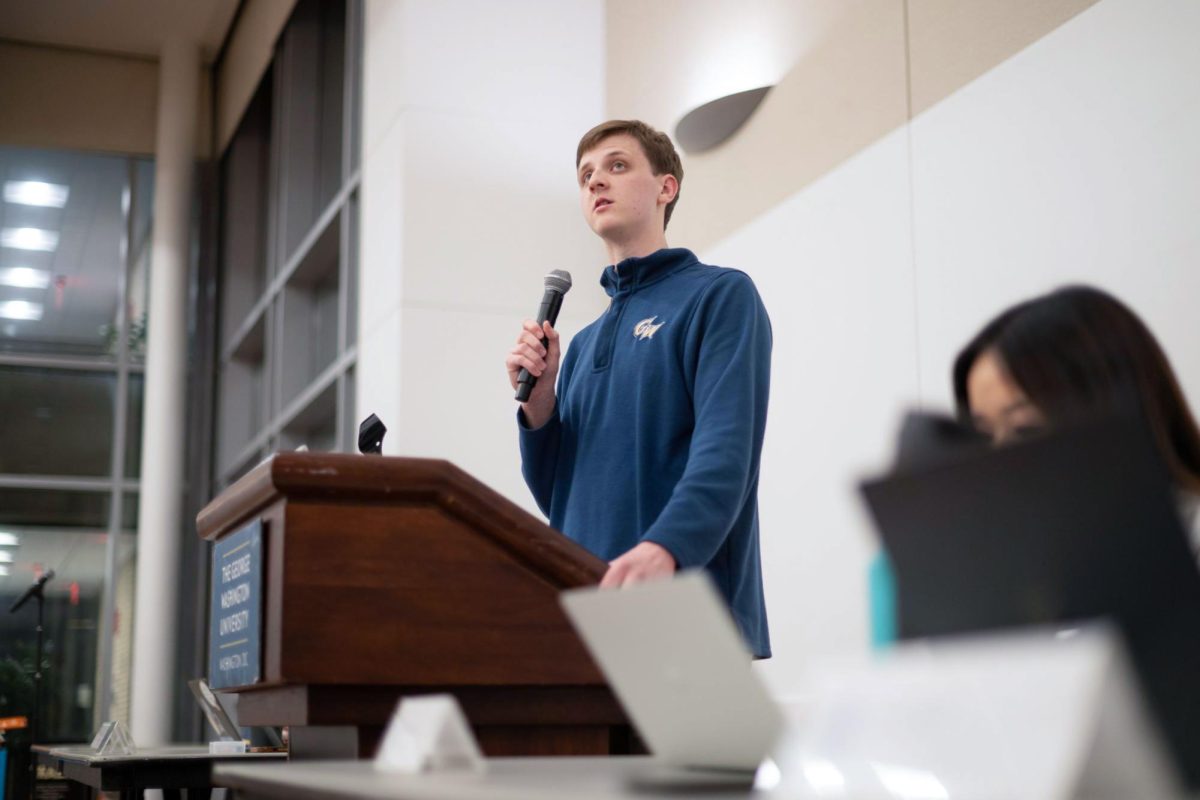The Student Association Senate unanimously approved legislation to support updating language in the Code of Academic Integrity at a meeting Monday.
Updates to the code include allowing certain violations to not remain on a student’s transcript after graduation and requesting “a restorative and educational approach” be taken for “low-level” violations. Senators also approved two co-sponsorship requests amounting in total to more than $40,000 and confirmed three new members to the senate.
The senate unanimously approved a resolution in favor of updating the procedures of the Code of Academic Integrity, like supporting a review of the code every five years. SA Sen. Cordelia Scales, SEAS-U and the sponsor of The Code of Academic Integrity Approval Act, said the updates clarify procedures in handling academic integrity violations “in certain situations.”
She added that members of the Faculty Senate have reviewed the changes, and the changes will go into effect July 1 if officials approve it “smoothly.” The faculty body is set to vote on the changes at a meeting on Friday.
Christy Anthony, the director of the Office of Student Rights and Responsibilities, said at the meeting that the updates include alterations that adjust consequences based on the significance of an assignment where a violation occurred. She said violations on smaller assignments would be treated less harshly than for larger assignments under the updated guidelines.
“We have added language to say that the significance of the assignment in question can be a factor in sanctioning so presumably cheating on a homework set is less serious than cheating on a final exam,” Anthony said.
Senators also approved a co-sponsorship request to WRGW for nearly $30,000 to help the organization purchase new equipment, update software and computers and soundproof the group’s studio located in the Marvin Center.
Pooji Jonnavithula, WRGW’s general manager, said budget allocations from the SA have decreased “significantly” since 2016 and said the funds given to the organization last fall, roughly $3,000, cannot sustain the group as their ongoing expenses alone are more than $8,000.
She said WRGW leaders spoke with officials from the Division for Student Affairs, the Office of General Counsel and Facilities Planning, Construction and Management but said all administrators told them “you are on your own.” She said the station will shut down within five years if they do not receive funding for the “critical renovations” because their current equipment is not enough to support the organization.
“We do not have the funds in our revenue account to do this on our own,” she said. “We not only will we not be able to broadcast during the pandemic and during the virtual space, but when we go back in person, we will not be able to function in the same way that we used to or just at all.”
Members of the organization had originally presented their almost $30,000 request to the SA finance committee, which opted out of allocating funds to go toward “in-person” needs, like soundproofing the studio, because students are still taking classes virtually.
But after members presented their case to the senate requesting a co-sponsorship fund of about $15,000, the senate voted overwhelmingly to allocate the total, original amount.
SA Sen. Thomas Falcigno, CPS-G, said the idea of student organizations coming to the SA to address issues like space maintenance or housing issues – as did the Beta Theta Phi fraternity when requesting $30,000 to cover University housing costs – is “absolutely ridiculous” because the University should cover those expenses.
“Every time we’re forced in these situations where if we don’t give the money then the org is going to go under or something’s going to be bad and it’s the University doing this to us and it’s absolutely ridiculous and I’m so tired of being used as pawns by them,” Falcigno said.
Senators also approved a $12,500 co-sponsorship request to the GW South Asian Society to fund a virtual charity event. Members of the organization said the occasion is part of a Multicultural Student Services Center event, which highlights the people and traditions of South Asian communities on campus.
Aarshi Kibria, the president of the South Asian Society, said the fundraising event will support the DC Mutual Aid Network, which provides resources and funding to members of the D.C. community, and the Asian Pacific Islander Domestic Violence Resource Project, which supports Asian and Pacific Islander victims of domestic assault or violence in the D.C. area.
Junior Viarun Vijay, the financial officer for the group, said the event in total will cost $13,700, more than 90 percent of which will be allocated for the organization’s virtual performer – Raveena – a “headliner for the intersectional R&B style of music.”
“We wanted to highlight her given our theme of connectivity that’s been running through this month and her leaning toward progressive movements as well as the fact that she was able to build a following online is really important for us to highlight our theme and the charities that we’re looking to support,” said senior Vishal Nyayapathi, another member of the organization.
Senators also reviewed language and provisions that will be included in the body’s updated constitution, like increasing the number of committees in the senate from four to nine and changing the name of SA caucuses to “resource groups.” The senate will vote on the proposed changes at the next meeting.
Senators also confirmed junior Patrick Burland and sophomore Athena Atsides-Del Valle to fill vacant undergraduate-at-large seats and Negus Assefa, a second-year graduate student in the Elliott School of International Affairs, to a graduate-at-large seat.











